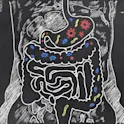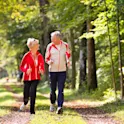
Health
22 Dec 2016
Vitamin D improves gut flora and metabolic syndrome
Extra vitamin D can restore good bacteria in the gut, according to a study in mice, giving hope in the fight against risk factors for diabetes and heart disease

Health
22 Dec 2016
Extra vitamin D can restore good bacteria in the gut, according to a study in mice, giving hope in the fight against risk factors for diabetes and heart disease

Open science and peer review
25 Aug 2016
To celebrate the publication of 50,000 peer-reviewed articles in Frontiers, we take a peek at the Top 10 most-cited Original Research articles in Engineering, Health and Science. We also included the Latest Original Research articles in Humanities and Social Sciences, to honour our youngest program.

Health
18 Aug 2016
— by Emily Barker, Frontiersin.org Just ten-weeks of exercise is nearly 100% effective at protecting the heart from potentially lethal changes in heart rhythms. Professor George Billman, Field Chief Editor of Frontiers in Physiology, works on preventing ventricular fibrillation, a very specific and potentially lethal change in cardiac rhythm, since 1980. In his current work, he has found that exercise could be the best non-pharmacological way to protect our hearts after sudden cardiac arrest. During ventricular fibrillation the heart does not beat in a coordinated fashion, instead it is a disorganized electrical event. “This is what you will see when they call a code blue and bring in a defibrillator to try to restore a cardiac rhythm,” he explained. The heart receives two sets of nerves, the sympathetic and the parasympathetic. A change in cardiac rhythms can be found when there is high sympathetic activity and low parasympathetic activity. To find the best way to protect the heart, Prof. Billman and his research team induced animals with a sudden cardiac arrest. They then put some of the animals on a ten week training program. About 95% of those who exercised were protected at the end of the program, whereas the sedentary animals got worse over time. […]
Get the latest research updates, subscribe to our newsletter